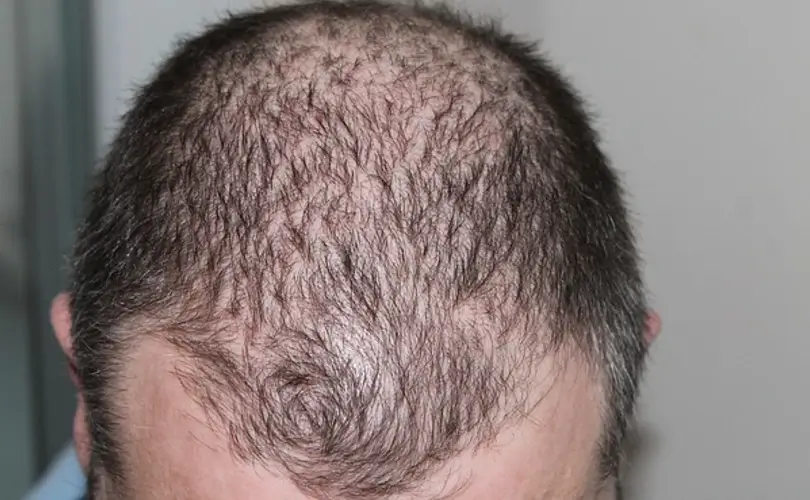A common problem for men is keeping their testosterone levels up. However, women may be just as susceptible to this illness as men. The symptoms and indicators can indicate anything. The adrenal glands, the ovaries, and the adipose tissue all work together to create the male hormone testosterone. The peak testosterone levels for most men occur in their mid-20s and gradually decline. One of the potential adverse effects is hair loss.
Male reproductive tissue relies on testosterone production, which regulates natural hormone levels. Hypogonadism, or low testosterone levels, is associated with hair thinning, balding, and loss. Hair loss or delayed growth may be another side effect of these illnesses. One person’s symptoms might not be the same as another’s.
The lack of energy is a symptom of low testosterone levels due to its importance for the brain. Low-T men are more likely to experience depression and irritability. Those affected by this may share feelings of powerlessness, loss, and rage.
The treatment may also increase free testosterone, which is beneficial because it promotes healthy hair growth. A gradual loss of hair is one of the symptoms of this disease in males; this medication will aid in managing this problem. The loss of scalp hair, or androgenic alopecia, is a typical hormone imbalance symptom.
Hair Transplant
Hair transplant surgery is a therapeutic option for males with low testosterone levels. Hair transplants involve the surgical removal of hair follicles from the feasible area of the scalp, typically the head’s back or side. Follicles are repositioned after a transplant. Biotin, a vitamin B, will most likely be utilized in transplants. In addition, meal energy is essential for hair growth; this vitamin helps the body do that.
When testosterone levels are healthy, people experience a surge in positivity and drive. Therefore, to maintain good health, it is recommended that you consume no more than 20 grams of saturated fats every day. Although most saturated fats are unhealthy, there are a few exceptions, including eggs, poultry, paneer, and coconut.
Taking a supplement formulated to boost testosterone levels is another option for treating low hormone levels. It has been shown that using testosterone pills will raise your testosterone levels and cause your hair to grow faster. Unfortunately, dietary supplements cannot include proprietary blends or secret ingredients.
Some medications help treat low testosterone levels and their associated symptoms. An example is testosterone replacement treatment, which lowers the amount of free testosterone in the system to prevent the body from producing DHT naturally.
Experiencing excessive stress has also been linked to hair loss in some cases. High-stress levels can cause the hair follicles to enter the telogen phase, leading to hair thinning or even loss. Eventually, the disorder can progress into trichotillomania, characterized by hair loss even during routine tasks like shampooing. However, stress-related hair loss is temporary, and full growth could resume if the source of stress is eliminated.
Increasing your testosterone levels is only possible by engaging in regular physical exercise. Weight lifting is ideal for this, and you should do it three to four times per week. More testosterone is produced in response to a more rigorous workout.
